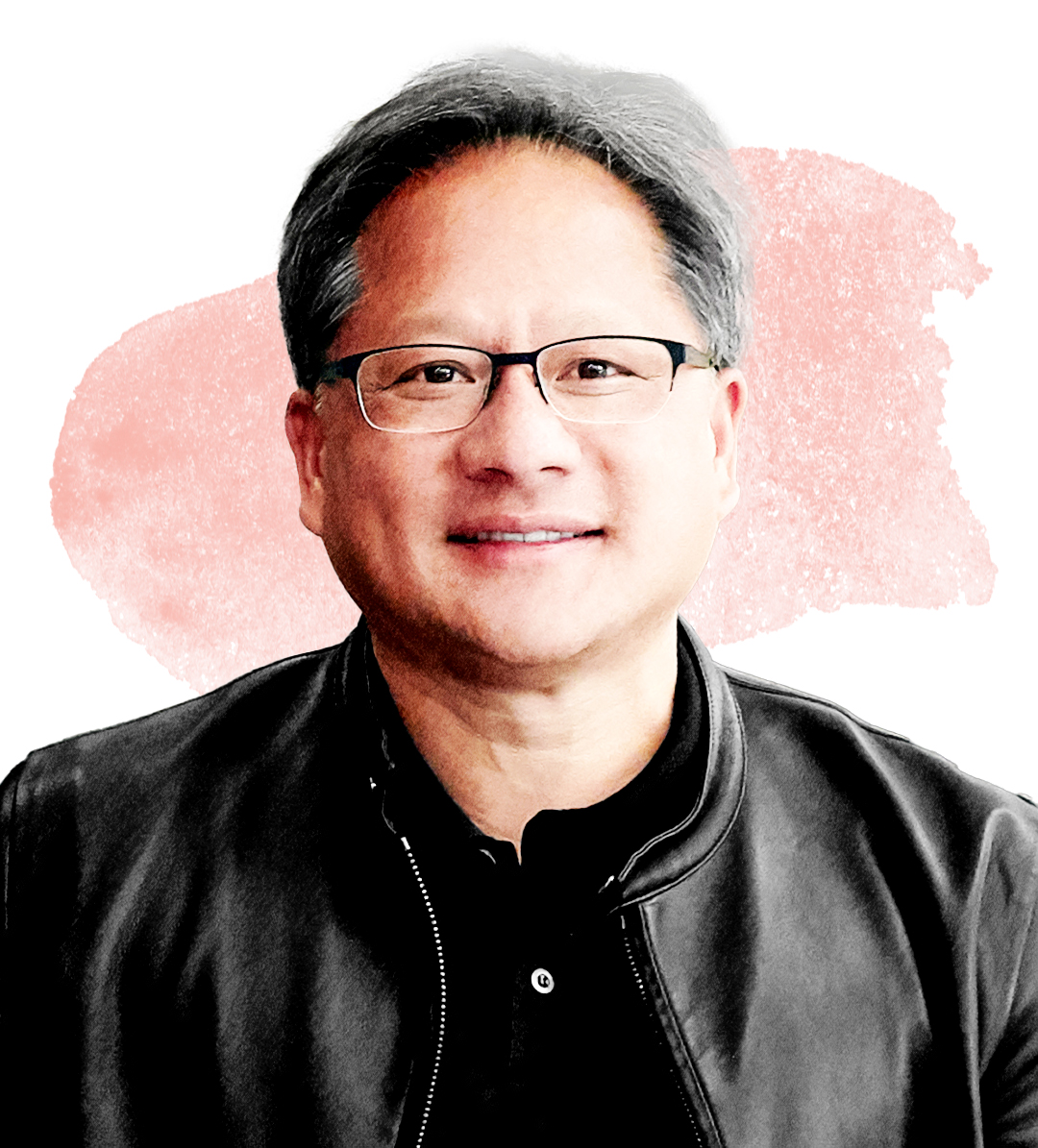Stunning visuals have been a lifelong obsession for Jensen Huang. Once, when he was just 8 years old, Huang sprayed lighter fluid on a swimming pool and jumped in just to watch the flames dance from below the surface. “Unbelievable,” he recalled, during a talk show in China. “I still remember the beautiful images.”
More from TIME
Huang parlayed that passion into an entire industry when in 1993 he founded Nvidia, whose original remit was building graphics cards for increasingly fantastical and immersive video games. Today, however, Huang’s firm, based in Santa Clara, Calif., is the world’s dominant producer of the microprocessors that power the AI revolution, propelling Nvidia’s stock to rocket 191% over the past year to late August’s $1.1 trillion valuation. Demand for Nvidia’s chips has soared with the explosion of large language models such as ChatGPT, with the firm’s latest GH200 processor, unveiled Aug. 4, significantly slashing algorithm-training time. “We have reached the tipping point of a new computing era,” Huang told the Computex conference in Taipei in May. “Everyone is a programmer now. You just have to say something to the computer.”
Huang, 60, was born in the southern Taiwanese city of Tainan and spent a chunk of his childhood in Thailand, where he has confessed to being “a very good student” though “very mischievous.” His family eventually settled in the U.S., first in rural Kentucky and then outside of Portland, Ore. After earning his masters from Stanford in 1992, Huang worked as a microprocessor designer at Advanced Micro Devices (AMD) before founding Nvidia over breakfast with two friends at a Denny’s in San Jose, Calif.
The trio might have choked on their Grand Slams had they been told back then that their fledgling enterprise would one day be thrust into a geopolitical tussle. U.S.-export controls introduced by the Biden Administration last October have blocked Nvidia from selling its most advanced chips to Chinese customers, prompting Huang to complain to the Financial Times of “enormous damage to American companies” if they’re unable to trade with the world’s No. 2 economy. “If they’re not thoughtful on regulations, they will hurt the tech industry.” It’s left Nvidia with exactly what Huang has long railed against: a lack of clarity.
- Cybersecurity Experts Are Sounding the Alarm on DOGE
- Meet the 2025 Women of the Year
- The Harsh Truth About Disability Inclusion
- Why Do More Young Adults Have Cancer?
- Colman Domingo Leads With Radical Love
- How to Get Better at Doing Things Alone
- Michelle Zauner Stares Down the Darkness





